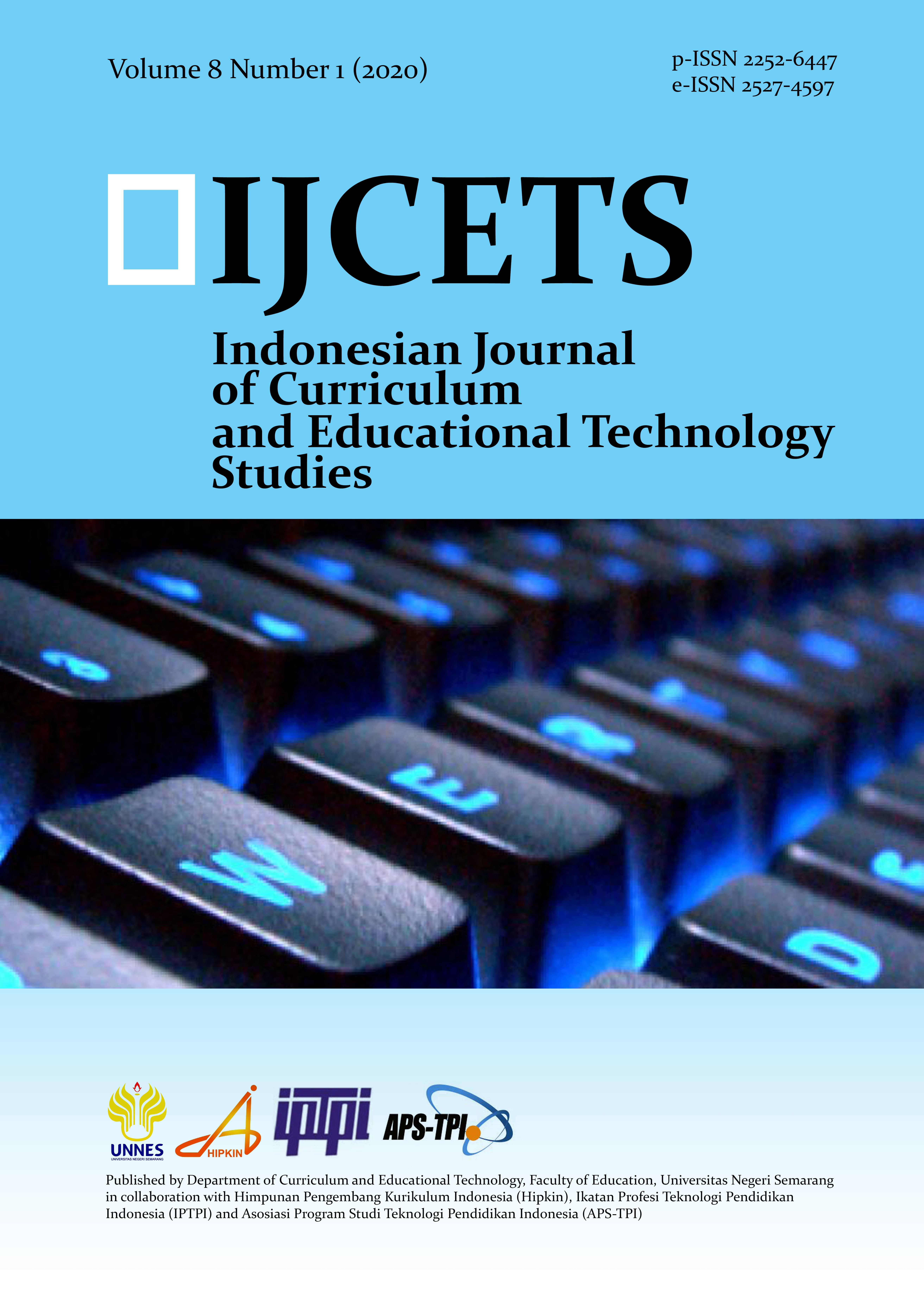Abstract
Dear all readers, we are in the very hard time on facing the Covid-19 outbreak, however it is our duty to publish the recent volume of our journal as an effort to contribute to the critical discourse on educational technology and Curriculum Studies, so we are glad to address this volume to all of you. In this volume, we publish six articles from many authors across the countries, e.g. from Nigeria, Philippines, and of course Indonesia and one book review from our editor.
First, Baluyos et al. illustrate the level of readiness for the implementation of the new curricula in Misamis University, Philippines. It found that there is a different perception toward the implementation of the new curricula between students and teachers that affect the success of its implementation. Baluyos et al. suggest several strategies to endorse the success of the implementation of the new curricula focusing on the socialization process lead by the management of the institution.
Second, Budiyanto et al. describe the implementation of credit system for senior high school in one of the pilot project schools in Salatiga, Central Java, Indonesia. This policy was closely related to curriculum issues and policy on how to give student right. Despite that the policy appropriate with the government intends to improve the schools’ orientation to facilitate the varieties of student needs and abilities, it also found several remaining obstacles come from the teachers and students, i.e. misunderstanding of the essence of the credit system.
Third, Casinillo & Casinillo develop an econometric model on students’ happiness in learning mathematic to identify its influencing factors. This article trying to cross the border of education studies by enriching it with such an econometric model. They found that household income, allowance, and mental health condition has a small influence on students’ happiness in learning, conversely, students who spend most of their time in the library seem much happier than others.
Fourth, Onojah et al. reveal how undergraduate students on several campuses in Nigeria use social media for learning purposes. They found that the students’ level of proficiency is high and it has several degrees of possibility to enhance their academic achievement. The more proficient students’ ability it means they have more opportunity to improve their academic success.
Fifth, Faqiroh tries to describe the development and implementation of problem-based learning model in the Indonesian context between 2010-2019. Based on several data and information from Google search engine it concluded that problem-based is one of the famous and familiar learning models among academicians in Indonesia. She also proposes that problem-based is appropriate with the recent trend and issue in this 21st-century skills, because problem-based learning model address students’ critical thinking, systematic thinking, problem-solving, and etc.
Sixth, Kholis and Kustiyono focusing on the critical issue of how the student with special in special education program need to enhance their skills on the English language by using such learning video entitled â€Cycling is Funâ€. This topic is deeply rooted in the spirit of how educational technology should improve students’ learning process and outcome by using technological processes and resources. It concludes that the product could create a conducive learning atmosphere, motivate student involvement, build student discipline, and activeness.
Lastly, the book review article addresses the work of Priestly and Biesta who edited a magnificent book entitled Reinventing the Curriculum: New Trends in Curriculum Policy and Practice (2013). This review tries to reveal the possibilities of such project into the development of Curriculum Studies, especially in Indonesian context. For those who concern on the recent development of curriculum policy in the international context, this review could be a good encounter to provide its context and substance.
At least, thanks to all authors, editors, reviewers, and readers for your contribution to this volume and onwards. We hope more audience will contribute for the next volume.
Semarang, April 2020
Editor-In-Chief
